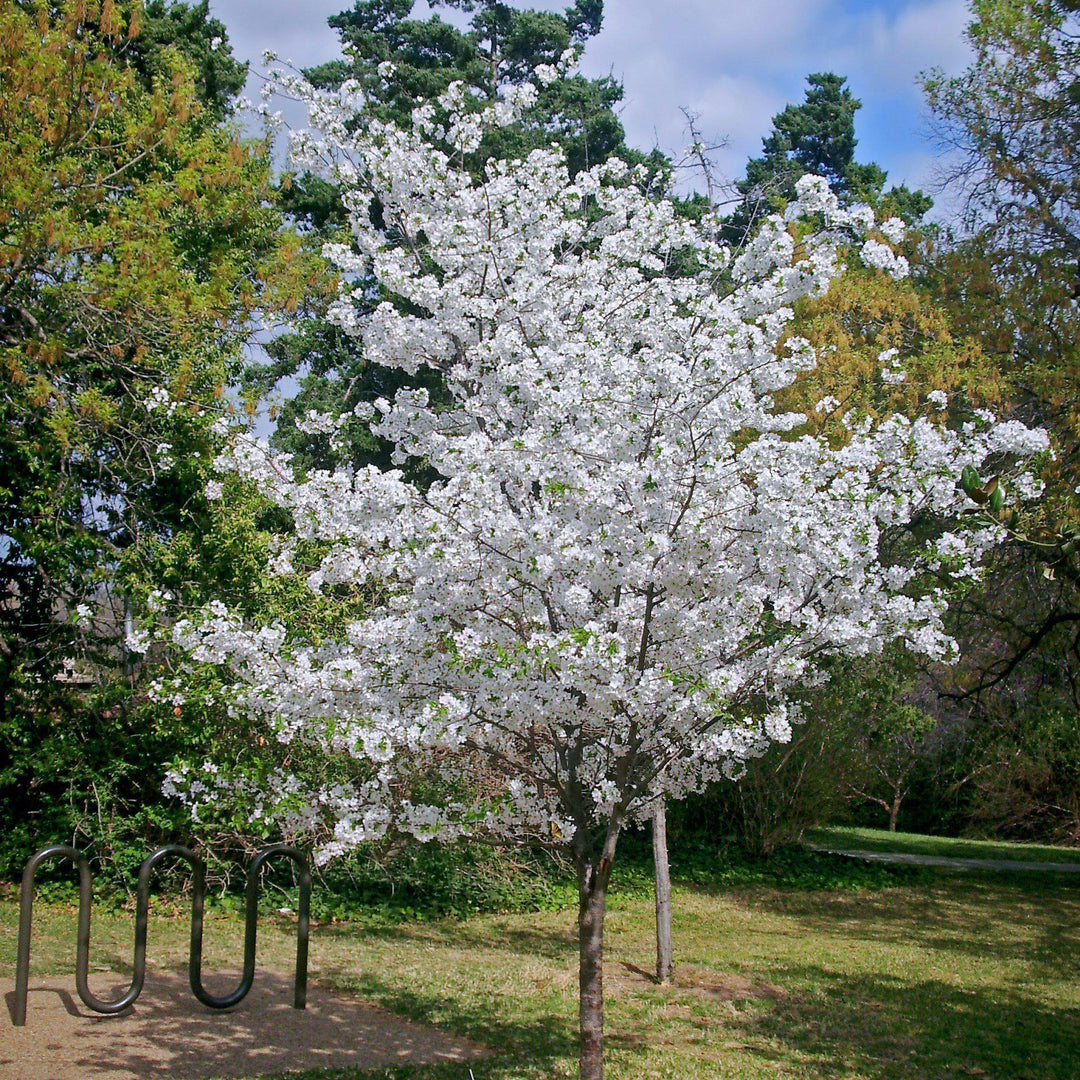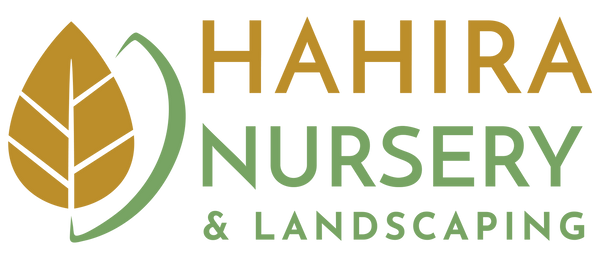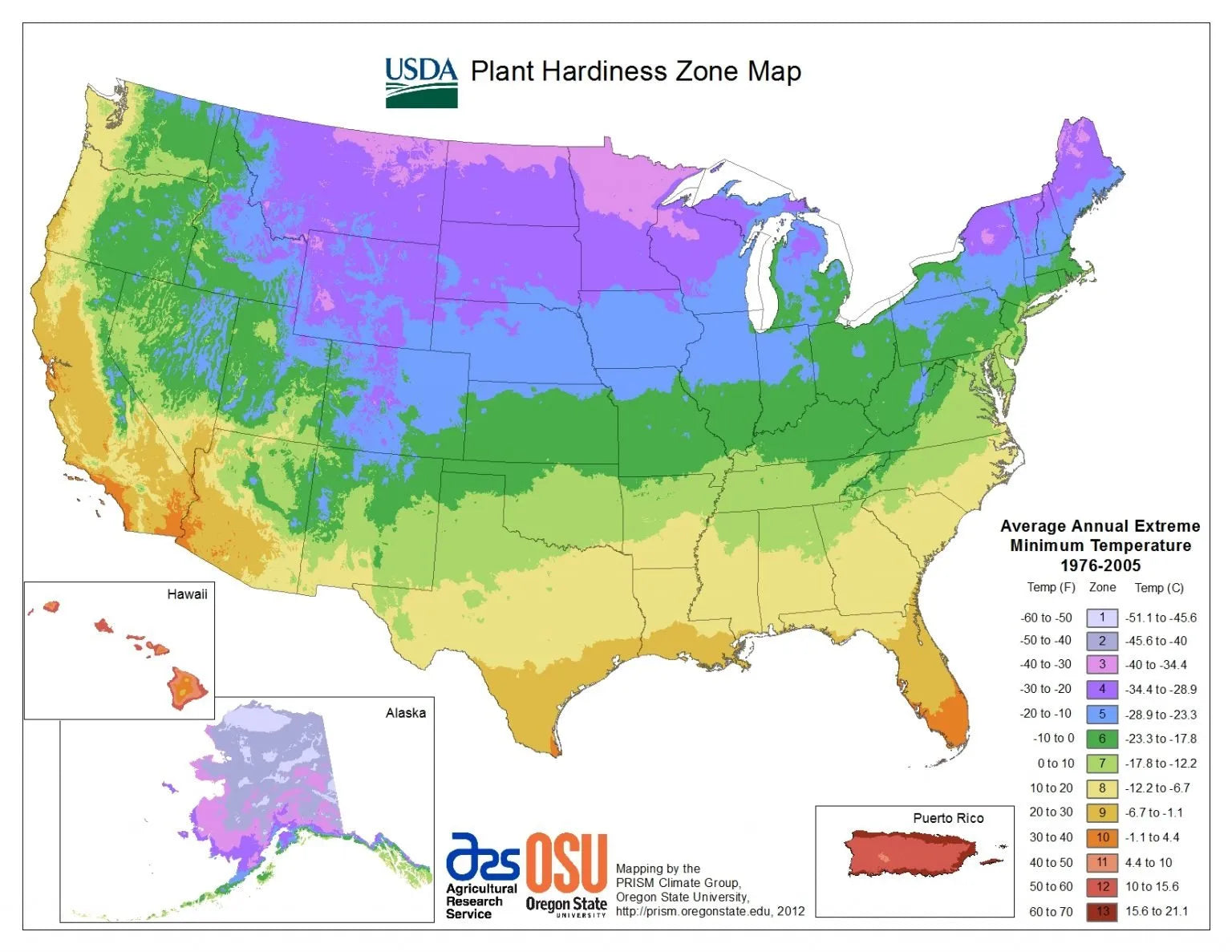
Yoshino Flowering Cherry
Prunus x Yedoensis
- In stock, ready to ship
- Backordered, shipping soon
- Locally Grown
-
The Yoshino Flower Cherry, also known as Prunus x yedoensis, is native to Japan. It is widely cultivated and admired for its stunning springtime display of delicate pink and white flowers.
-
Appearance: This cherry tree typically grows to a height of 25-40 feet (7.6-12 meters) with a spread of 25-30 feet (7.6-9 meters). It has a graceful, vase-shaped form and smooth, grayish-brown bark. The flowers are single-petaled and appear in clusters, creating a breathtaking spectacle when in full bloom.
-
Flowering Season: Yoshino cherries bloom in early spring, usually around late March to early April. The blossoms last for about one to two weeks, depending on weather conditions.
|
Type: |
Tree |
|
Origins: |
P. lannesiana x P. pendula Hybrid |
|
Height: |
30’ - 40’ |
|
Spread: |
30’ - 40’ |
|
Spacing: |
35’ |
|
USDA Hardiness Zone: |
5 - 8 |
|
Culture: |
Full Sun |
|
Bloom Color: |
White |
|
Season of Interest: |
Spring, Fall |
MAINTENANCE NEEDS: High Maintenance. Pests and diseases can be a problem. Watch for aphids, scale, borers, caterpillars, beetles and spider mites. Potential diseases include leaf spot, dieback, leaf curl, powdery mildew, root rot, and fireblight. Cherries have weak wood and are susceptible to breakage.
LANDSCAPE USES: Accents or Group Plantings, Borders, Woodland Gardens, Naturalized Areas, Wildlife Gardens, and Shade Tree.
COMPANION PLANTS: Hibiscus, Coneflower, Viburnum
IMAGE: Photo by Steven Martin, Yoshino Cherry in Bloom
Hahira Nursery takes pride in growing high-quality, fresh, healthy plants and ensuring they are delivered safely, on time, and with little to no damage so they are ready to be planted.
Despite all of our best efforts, once the plants have left our nursery, there are many variables outside of our control that can cause plants, flowers, trees, shrubs, or grasses to not thrive as they should. Plants are living organisms and are susceptible to a number of different environmental and care factors that are outside of our control.
Our goal is to build strong relationships with our customers and we always want to make things right, but we cannot always guarantee what happens once the plants are outside of our nursery, how you care for the plants, if they’re in the correct growing zones, weather damage, soil conditions, insect infestations, etc..
If you have any questions or concerns about a purchase you’ve made, please email us at info@hahiranursery.com and we will work with you on a case-by-case basis to the best of our ability.
Please note that all living organisms are not identical and their coloring, size, and shapes may differ from what you see online in our store. Each plant has its own characteristics that are impacted by the time of year, growth cycle, weather, and other elements which will cause them to look different than their photos.


